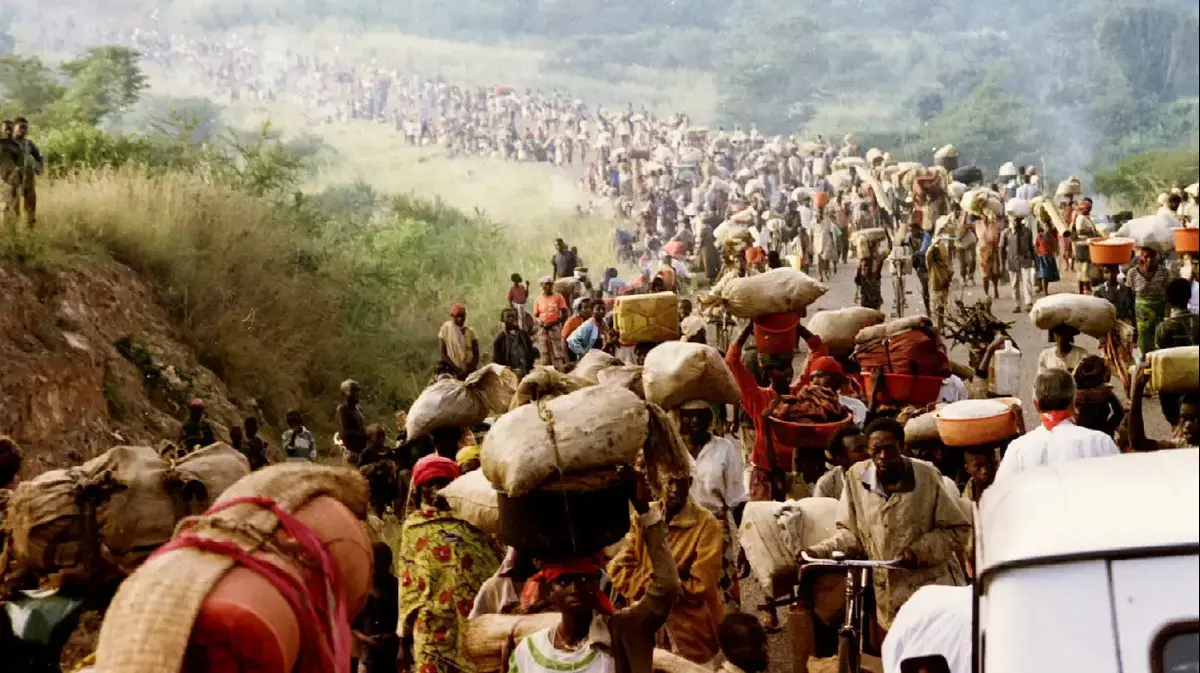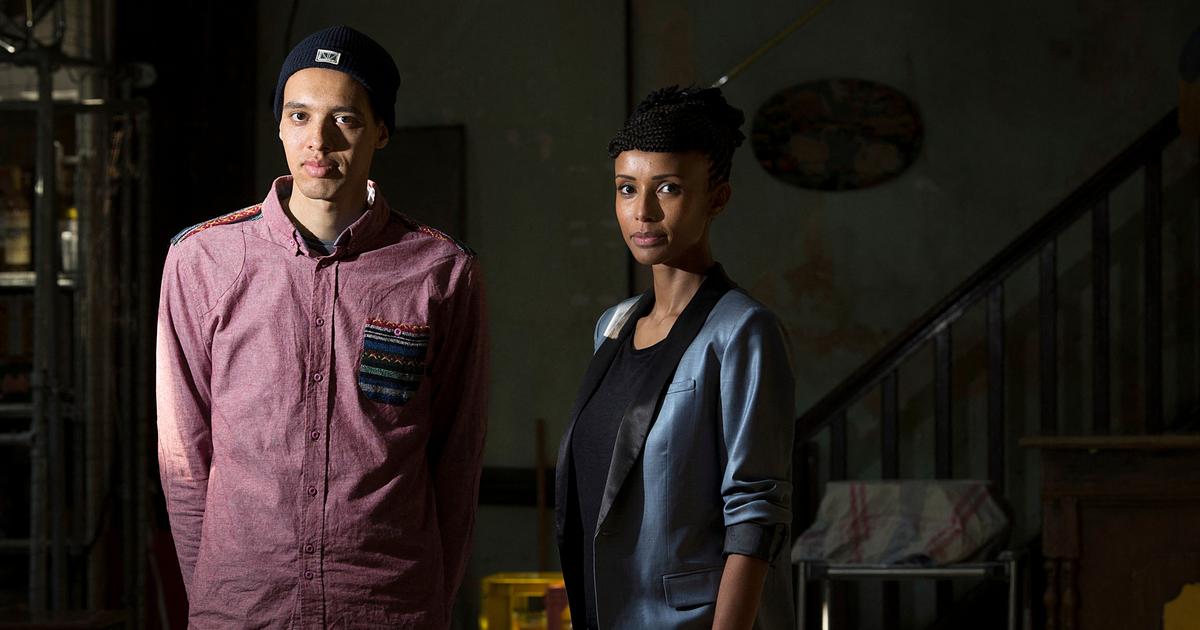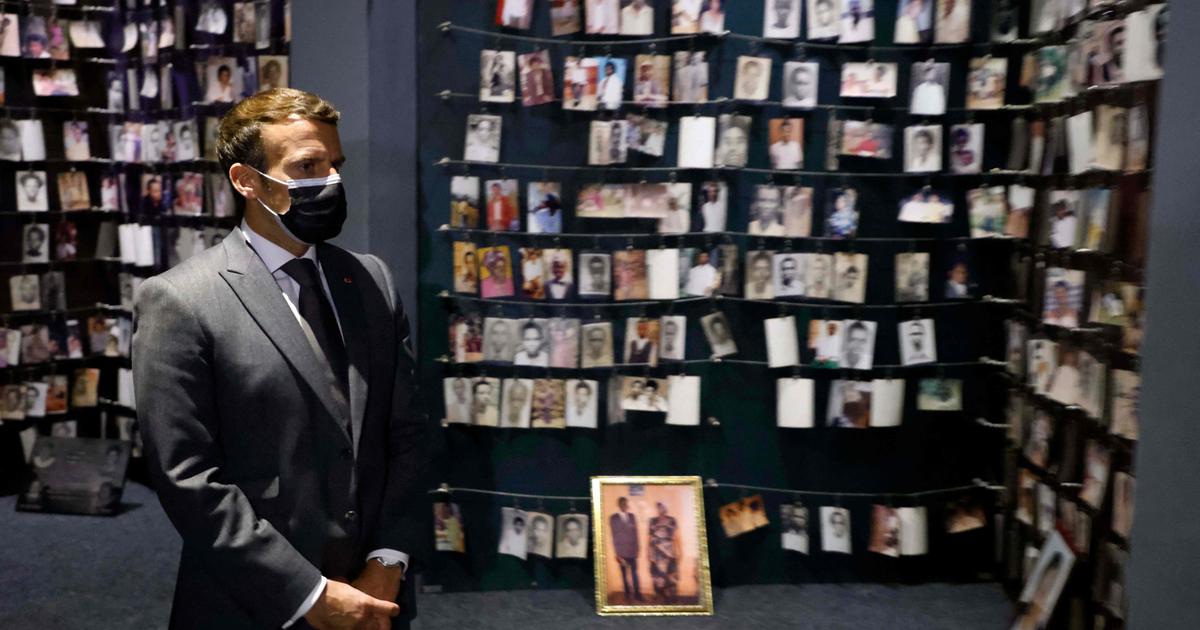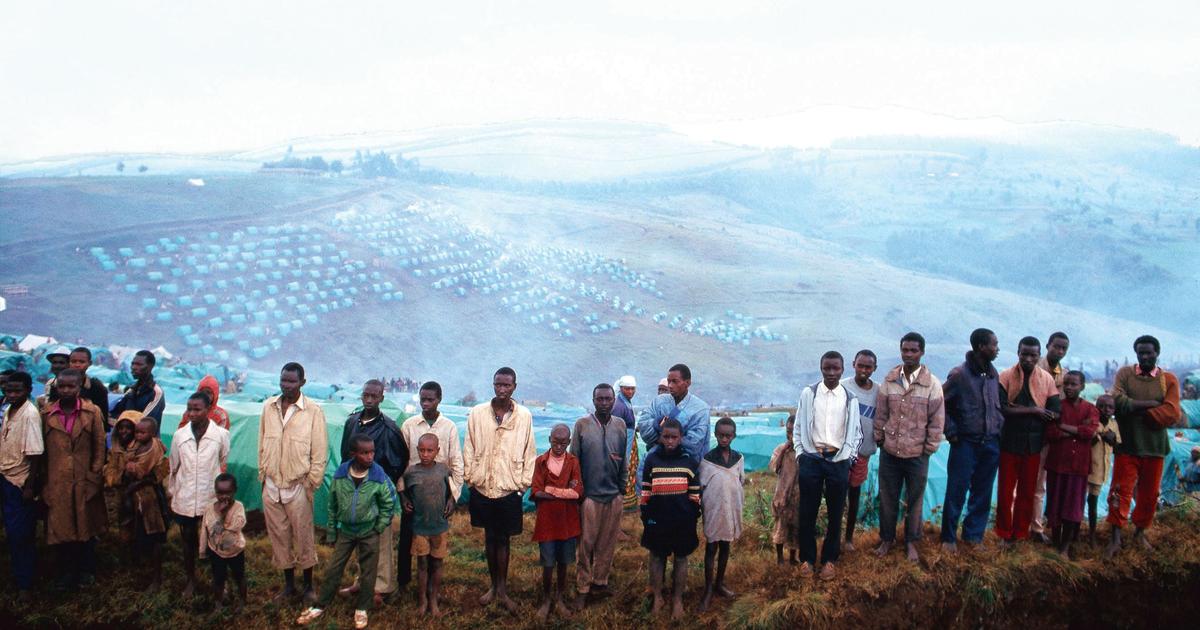On the hill of Nyanza-Kicukiro, gardeners are busy among the white or pink flowers, in the heart of a soft green cocoon. “When we are here, we remember that there were corpses, blood. It brings sorrow ”, breathes Brave Olivier Ngabo, the director of the memorial where more than 96,000 victims are buried. Three thousand Tutsis flocked here on April 11, 1994, when the Belgian UNAMIR forces left the Official Technical School (ETO) where they thought they could find refuge. "One hundred people survived", continues Naphtal Ahishakiye, executive secretary of Ibuka - "Remember" - an association of survivors of the Tutsi genocide, which killed more than 800,000 people. This garden, he comes to say that "one can replace the bad by the good" says the director.
Brave Olivier Ngabo. His name alone says what he needed courage. He was seven years old in 1994. His throat tightens when he talks about what began as an Easter holiday with his paternal grandfather. A hundred days will follow to run to escape the Hutu executioners who killed his parents, his brother and most of his family. “Giving a testimony from start to finish, without delving into memory, is not easy,” he says.
This Thursday morning, at the other end of Kigali, Emmanuel Macron will dive into this painful past, by going to the Gisozi memorial where more than 250,000 souls rest.
Here, too, trees have grown back.
The French president will deliver a long-awaited speech there, while for twenty-seven years the role played by France in the genocide of the Tutsi has poisoned the relationship between Paris and Kigali.
The Head of State will address it in particular to the "survivors", a highlight of a visit which should devote the "final stage of normalization of relations" between the two countries, according to the Elysee.
The words will be weighed with a trebuchet.
"It is therapy for genocide survivors"
"The French need to take a lucid and uninhibited look at (the past)," said the head of state, questioned about his memorial endeavor, in Zadig magazine. Where he added not to be "at all in repentance", but to consider "that we have the possibility of reviewing our history in the long term". Will he apologize on behalf of France, as Belgium, the United States, the United Nations, the Catholic Church have already done? Judging recently in Le Monde that they "cannot come on demand", the Rwandan president, Paul Kagamé, does not require it. Some associations do. "It is up to him to say it, but it is the minimum", estimates Jeanne Allaire Kayigirwa, survivor and member of Ibuka France, association received at the Elysee Palace in April 2019.
This visit, Naphtal Ahishakiye judges it in advance "very significant", estimating that since the publication of the report directed by the historian Vincent Duclert, "the relations are founded on the historical truth".
He continues: “It is therapy for genocide survivors.
Twenty-five, twenty-six, without saying anything… It weighed heavily on hearts and memories.
The previous (and only) gesture of a French president dates back to 2010, when Nicolas Sarkozy had recognized "serious errors of appreciation" and "a form of blindness" during a press conference in Kigali.
Naphtal Ahishakiye is the executive secretary of the Ibuka survivors association.
LP / Pauline Théveniaud
A major milestone last March, the Duclert report concluded on France's “heavy and overwhelming responsibilities” and on the “blindness” of the then socialist president, François Mitterrand, and his entourage, in the face of racist drift and genocide of the Hutu government supported by Paris at the time.
"We must achieve a form of epilogue", also judged Paul Kagamé still with the World, while Emmanuel Macron said last week that he would "be keen to write a new page".
"If you made mistakes, admit it"
"If we want to turn the page, we must turn it properly", echoes Pierre Kalinganiré, survivor of the genocide, now a 43-year-old engineer. Of the 14 people who made up his family in Nyamata, only three remained after 1994. “If you've made mistakes, let's face it, let's move on. Forgiveness is the future, ”he says. On his desk, located in the center of Kigali, enthroned photos of his wife and children, images of smiles and life. What would he say to those who, like the boss of the Modem François Bayrou at the beginning of May on France Inter, reject the idea of apologies on the part of France? "How does it feel to say,
I was wrong
?" This is humanism. "
Pierre Kalinganiré is a survivor of the Tutsi genocide, now 43 years old.
LP / Pauline Théveniaud
Like Naphtal and Brave Olivier, or Jeanne Allaire, whatever the words, he expects above all "acts" at the judicial level.
"If Macron wants to do something really strong, we must stop the genocidaires who are in France, that we see them in court," said Pierre Kalinganiré.
The latter could be a hundred according to the associations.
All of them “sometimes refuse” to delve into their memories.
They all face it at the same time.
On the stele of the Nyanza-Kicukiro memorial, we can read: “A stone, like memory for eternity.
A garden, like rebirth after a genocide.
"









